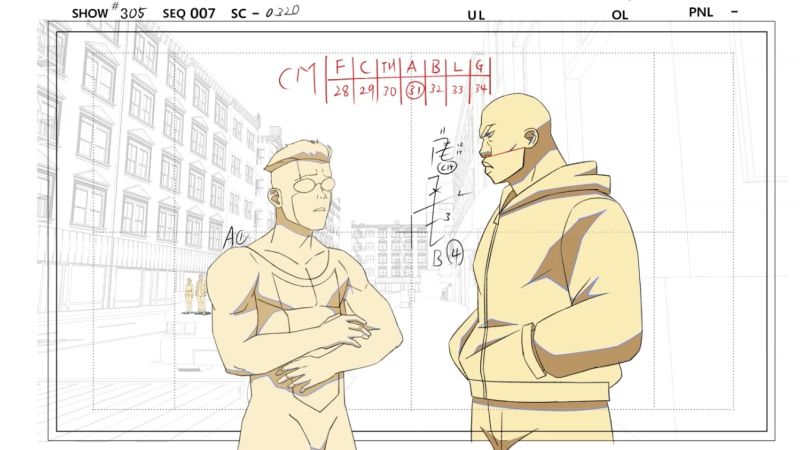A recent discovery by US researchers revealed that North Korean illustrators and graphic designers may have unknowingly helped produce work for US animation studios, potentially leading to the inclusion of their work in unreleased episodes of popular American cartoons. The documents were found in a North Korean computer server, indicating that the work had been outsourced to workers in North Korea without the knowledge of the American companies involved. Among the files were drawings for an upcoming season of the show “Invincible” on Amazon Prime Video, as well as sketches and videos resembling work for the superhero series “Iyanu: Child of Wonder” on the Max streaming service owned by Warner Bros. Discovery. There is no evidence that the studios were aware of their work being on a North Korean server.
The discovery raises concerns about US companies’ ability to control their supply chains and avoid inadvertently violating sanctions prohibiting business with North Korea. The files unearthed from the North Korean server included Chinese instructions translated into Korean, calling for adjustments to the animation. There were also English editing sheets specifying work for “Invincible,” indicating detailed involvement in the animation process. Logs from the server showed connections from internet sources in northeast China, hinting at possible coordination between workers in China and North Korea on the animation projects.
Companies like Skybound Entertainment, responsible for “Invincible,” reiterated that they do not contract with Chinese or North Korean companies and were unaware of any such involvement in their work. Other companies, including Lion Forge Entertainment and the creators of “Iyanu,” also stated their lack of knowledge about any outsourcing to North Korean entities. Investigations are ongoing to clarify the situation and ensure compliance with sanctions regulations. The Stimson Center conducted an analysis of the documents found, highlighting the possibility of multiple contracting steps downstream from major producers, leading to unintended involvement with North Korean workers.
North Korea has a history of engaging in animation and movie production for propaganda and revenue purposes, with SEK Studio as the main animation studio based in Pyongyang. The studio has been sanctioned by the US Treasury Department for its connections to the North Korean regime and its involvement in animation work. Amid sanctions and financial constraints, North Korea has increasingly turned to IT workers abroad to generate hard currency, raising concerns about the reach of North Korean workers in various sectors, including animation. US officials and private experts have been working to address the potential insider threat posed by North Korean IT workers and hackers.
The discovery of the North Korean server hosting content from US animation studios has prompted investigations by relevant agencies, including the FBI. The Treasury Department expressed concern about revenue generation efforts by North Korea to support weapons programs through cybercrime and sanctions evasion. Independent researcher Nick Roy has been monitoring North Korean internet infrastructure for years to gather information about the country. North Korean comics and animation have long been prevalent in society, with advancements made through technology and potentially through imitation of Western production companies. Despite recent advancements, concerns remain about North Korea’s involvement in international projects and potential violations of sanctions regulations.













